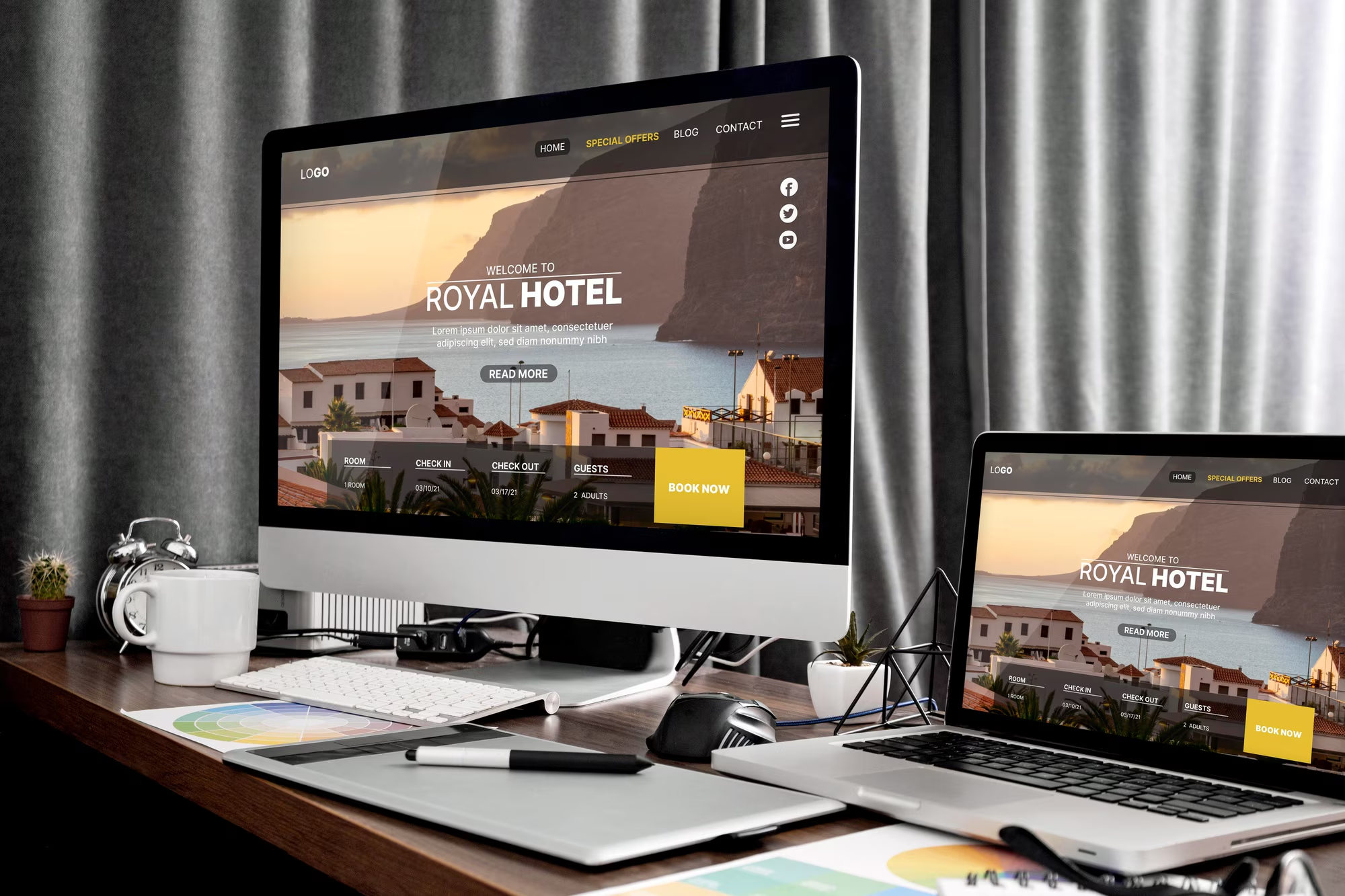Рубрика: News

Introduction
In today’s competitive market, mobile apps development is essential for businesses to stay ahead. But choosing between native apps and cross-platform solutions can be challenging. This guide explores both approaches to help you select the right one for your needs.
What Are Native Mobile Apps?
Native apps are developed specifically for a single platform, such as iOS or Android, using platform-specific technologies like Swift for iOS or Kotlin for Android.
Benefits of Native Apps
- High Performance: Native apps use the platform’s full potential, offering smooth and fast experiences.
- Enhanced User Experience (UX): Tailored to each operating system, native apps provide seamless navigation.
- Full Device Integration: Native development enables access to features like the camera, GPS, and biometrics.
- Robust Offline Support: Superior offline functionality ensures reliability.
Challenges of Native Apps
- Higher Costs: Developing separate apps for iOS and Android can double the expenses.
- Time-Intensive: Building two versions takes longer.
What Are Cross-Platform Apps?
Cross-platform apps are built using frameworks like React Native, Flutter, or Xamarin, allowing a single codebase to run on multiple platforms.
Benefits of Cross-Platform Apps
- Cost-Effectiveness: One codebase significantly reduces development and maintenance costs.
- Faster Launch Times: Quick development cycles get your app to market faster.
- Broader Audience Reach: Supports both iOS and Android users with one app.
Challenges of Cross-Platform Apps
- Performance Trade-offs: These apps may not perform as well as native apps for resource-intensive features.
- Limited Feature Access: Certain platform-specific functionalities may be unavailable.
- Design Constraints: Achieving consistent UX on different platforms can be difficult.
How to Decide Between Native and Cross-Platform Development
- Complexity: Native apps are ideal for feature-rich, complex applications.
- Budget: Cross-platform apps offer a cost-effective solution for smaller budgets.
- Timeline: If speed is critical, cross-platform development is faster.
- User Base: Analyze your target audience’s device preferences to decide.
Why Choose HKDevotion for Mobile App Development?
At HKDevotion, we specialize in both native apps and cross-platform solutions, ensuring your app aligns with your business goals.
Our Approach:
- Consultative Analysis: We assess your project’s requirements to recommend the optimal approach.
- Timely Delivery: Projects are delivered on time, every time.
- Fixed Pricing: Transparent, no hourly billing.
- Proven Success: Trusted by businesses across industries including e-commerce, healthcare, and real estate.
Conclusion
The decision between native apps and cross-platform solutions depends on your specific needs, budget, and timeline. With HKDevotion, you gain access to experts who can help you make the right choice for your business.
Ready to bring your app idea to life? Contact HKDevotion today for a free consultation and expert guidance on the best mobile app development solutions for your business.

Introduction
A well-crafted Technical Requirements Document (TRD) is the cornerstone of successful digital projects. Research from McKinsey highlights that 45% of IT projects exceed budgets due to undefined scopes . A TRD eliminates ambiguity, ensures clear communication, and helps align developers with your business goals. In this article, we explore how a TRD can save costs, reduce risks, and guarantee timely delivery for your projects.
Why a Technical Requirements Document (TRD) is Essential
Common Project Pitfalls Without a TRD
Projects lacking a detailed TRD often suffer from:
Budget Overruns: Gartner reports that 33% of IT projects exceed their budgets due to unclear requirements.
Missed Deadlines: According to BCG, 66% of projects are delayed because of evolving or incomplete specifications.
Quality Issues: A poorly defined scope leads to frequent revisions, increasing costs by up to 30% post-launch.
Aligning Teams and Expectations
A TRD serves as a single source of truth, ensuring alignment between stakeholders and the development team. Harvard Business Review states that 85% of successful projects begin with detailed requirements documentation .
How a TRD Saves Costs and Reduces Risks
Precise Budget and Timeline Estimations
A TRD outlines all functionalities and technical specifications, enabling developers to provide accurate cost and time estimates. Projects with clear requirements are 40% less likely to experience budget overruns, according to PMI .
Streamlined Resource Allocation
With a TRD, developers can allocate resources effectively, minimizing wasted time and effort. For instance, HKDevotion reduced development costs by 25% on average for clients who provided comprehensive TRDs.
Minimized Scope Creep
Scope creep—when additional features are added during development—can derail projects. A TRD clearly defines project boundaries, reducing scope creep and associated costs by up to 35%.
Steps to Create a Comprehensive TRD
Define Clear Objectives
Start by identifying the problem your project aims to solve. For example, if you’re creating a healthcare platform, your TRD should outline specific challenges like inefficient data management or lack of patient portals.
Detail Features and Functionalities
Include a comprehensive list of required features, such as user authentication, third-party integrations, and scalability options. Harvard Business Review highlights that detailed specifications reduce rework by up to 50%.
Use Collaborative Tools for TRD Development
Platforms like Jira, Confluence, or Trello help teams collaborate in real time, ensuring no critical elements are missed. Forbes reports that teams using collaborative tools are 28% more likely to deliver projects on time.
The Role of Reliable Contractors in TRD Development
Expert Guidance to Refine Your TRD
Reliable contractors don’t just execute; they assist in refining and expanding your TRD. At HKDevotion, we work closely with clients to identify gaps in their requirements, ensuring a complete and actionable TRD.
Predictable Outcomes with a Clear TRD
A detailed TRD allows contractors to deliver predictable results. For example, HKDevotion helped a real estate client streamline operations by delivering a platform that increased efficiency by 30%, thanks to a well-drafted TRD.
Conclusion
A Technical Requirements Document (TRD) is more than a formality—it’s a strategic tool that saves costs, reduces risks, and ensures on-time project delivery. By defining clear objectives, functionalities, and project boundaries, you create a roadmap for success. Partnering with experts to refine your TRD ensures all aspects of your project are accounted for, paving the way for seamless execution.
Need help creating detailed technical requirements for your next project? Contact HKDevotion today for expert guidance and guaranteed project success. Let us help you streamline your project from start to finish.
Sources Referenced
- McKinsey Digital: Delivering Large-Scale IT Projects
- Gartner Research: Budget Overruns in IT Projects
- BCG: Why Projects Fail
- Harvard Business Review: Metrics in IT Projects
- PMI Research: Project Planning Insights
- Forbes: The Impact of Collaborative Tools

Finding the Right Fit for Your Business
When starting a new online project, one common question arises: «Do I need a custom website, or can I use a template?» This decision can significantly impact your branding, functionality, and budget. Let’s explore the differences and help you choose the best option for your business.

Template Website vs. Custom Website
Understanding Custom Website
Tailored Solutions for Unique Needs
Custom websites are built from the ground up to meet specific business requirements. This means you can create a unique design and incorporate functionality that aligns with your goals.
Flexibility and Scalability
With a custom website, you have complete control over features and design. As your business grows, you can easily add new functionalities without constraints.
The Benefits of Using Template Website
Cost-Effective and Quick to Launch
Templates offer a budget-friendly solution. They are pre-designed and can be set up quickly, making them a great option for startups or small businesses.
Easy to Use and Maintain
Many templates come with user-friendly interfaces. Even if you’re not tech-savvy, you can easily manage your website without needing extensive coding knowledge.
When to Choose a Custom Website
Unique Branding Needs
If your brand requires a unique look and feel that stands out from competitors, a custom website is the way to go. This option ensures your brand identity is clearly represented.
Advanced Functionality Requirements
If you need specific features (like complex e-commerce capabilities or integrations), custom development can provide tailored solutions that templates cannot.
When to Opt for a Template Website
Limited Budget and Time Constraints
If you’re on a tight budget or need a website quickly, templates are an ideal choice. They allow you to get online without breaking the bank.
Simple Business Needs
If your website doesn’t require advanced features, a template may suffice. It’s perfect for simple websites like blogs or portfolios.
Here’s a simple pros and cons table comparing custom websites and template websites:
| Feature | Custom Websites | Template Websites |
| Pros | — Unique design tailored to a brand | — Cost-effective |
| — Full control over features and functionality | — Quick to launch | |
| — Scalability for future needs | — User-friendly, easy to maintain | |
| — Enhanced SEO capabilities | — Good for simple websites | |
| Cons | — Higher initial cost | — Limited customization |
| — Longer development time | — May not stand out in a crowded market | |
| — Requires ongoing maintenance | — Less flexibility for future changes |

Making the Right Choice for Your Business
Choosing between a custom website and a template depends on your needs, budget, and time frame. Custom websites offer unique solutions tailored to your business, while templates provide a quick and cost-effective way to get online. If you are unsure, contact HKDEVOTION for expert guidance in choosing the right web solution for your business.

Why Choosing the Right Website Development Company Matters
Selecting the right website development company can make or break your online presence. Whether you’re a small business or a large enterprise, you need a reliable partner who can bring your ideas to life. But how do you find the best team for the job?
How to Choose the Right Website Development Company

How to Choose the Right Website Development Company?
Look at the Company’s Portfolio
Check Their Past Work
Before you hire a company, review its portfolio. Look for projects similar to your own and check if their style matches what you envision for your website.
Focus on User-Friendly Designs
Please make sure the websites in their portfolio are not only visually appealing but also easy to use. You want an attractive and functional website, so users stay engaged.
Consider Experience and Expertise
Find a Company with Experience in Your Industry
If possible, choose a web development company with experience in your specific industry. They’ll better understand your business needs and create solutions tailored to your audience.
Look for Full-Service Companies
It’s often helpful to choose a full-service web development company. This means they handle everything—design, development, SEO, and ongoing support—so you won’t need to hire multiple agencies.
Understand Their Communication Style
Clear Communication is Key
Good communication is critical when working on a website project. Make sure the company is responsive, open to your ideas, and explains things in a way you understand.
Look for a Collaborative Process
Choose a company that involves you in the process, asks for feedback, and provides updates throughout the project.
Evaluate Their Technical Skills
Ask About the Technologies They Use
You don’t need to be a tech expert, but knowing what technologies they use is important. Popular platforms like WordPress or custom solutions like Laravel might be mentioned. Ask why they prefer certain technologies over others.
Ensure Mobile-Friendly and SEO-Optimized Designs
In today’s world, mobile optimization and SEO are critical. Ensure the company builds websites that work well on smartphones and are optimized for search engines.
Check for Customer Reviews and Testimonials
Read Reviews from Past Clients
Reviews and testimonials offer insight into the company’s reliability. Look for positive feedback about how the company handles deadlines, communication, and post-launch support.
Ask for References
It’s okay to ask the company for references. Speaking to previous clients can give you a clearer idea of what it’s like to work with them.
Discuss Costs and Timeline
Get a Clear Estimate
Before you commit, get a detailed cost estimate. A good web development company will be transparent about pricing and explain the costs.
Understand the Timeline
Make sure the company provides a realistic timeline for the project. Avoid companies that promise speedy delivery without thoroughly explaining the process.
Making the Right Choice
Choosing the right website development company doesn’t have to be difficult. By reviewing portfolios, understanding their communication style, and checking their expertise, you can find a reliable partner for your project. Contact HKDEVOTION today for expert guidance on your website needs.

How to Choose the Right Website Development Company | HKDEVOTION
SEO (Search Engine Optimization) is optimizing your website to improve its visibility on search engines like Google. The better your website ranks in search results, the more traffic and potential customers it attracts. But why is It so important, and how does it impact your website?

Why SEO Matters for Your Website?
Increases Website Traffic
Organic Traffic from Search Engines
It helps your website rank higher in search results, driving more organic traffic. People are likelier to click on the top search results, so improving your ranking means more visitors.
Targeting the Right Audience
SEO ensures your website appears when people search for services you offer using the right keywords. This brings in traffic that is genuinely interested in your business.
Builds Credibility and Trust
Higher Rankings Build Trust
When your website ranks higher in search engines, users trust it more. Optimizing your content and ensuring a positive user experience helps establish credibility.
User-Friendly Websites
SEO isn’t just about keywords; it also focuses on creating websites that are easy to navigate. A well-structured website improves user experience, which search engines favour.

Long-Term Success with Cost-Effective Results
Cost-Effective Marketing
Unlike paid advertising, which stops working once you stop paying, It offers long-term benefits. Once your website ranks well, it can continue to bring traffic without additional costs.
Staying Competitive
Without SEO, you may be missing out on valuable leads and customers. If your competitors are optimizing their websites, staying competitive requires it.
Top 10 Benefits of Optimization for Businesses
Long-Term Results: Once ranked, it can drive consistent traffic over time.
Increased Website Traffic: Higher search engine rankings bring more visitors to your site.
Improved User Experience: Websites are designed to be faster and more user-friendly.
Cost-Effective Marketing: Long-term visibility without constant ad spend.
Higher Credibility: Ranking on the first page builds trust among users.
Targeted Audience: Attracts visitors specifically looking for your services or products.
Better Conversion Rates: Optimized websites are easier to navigate, improving sales or leads.
Enhanced Local Visibility: Helps businesses attract local customers through local search optimization.
Measurable Results: Provides insights and analytics to track performance.
Competitive Advantage: Outrank competitors by appearing higher in search results.

SEO tips for better Google ranking
Why SEO is Crucial for Your Website
SEO is essential for any website that wants to attract more visitors, build credibility, and achieve long-term success. Optimizing your website for search engines can increase traffic and conversions without paying for ads. Contact HKDEVOTION to learn more about how we can help you with your SEO strategy.
Why Your E-Commerce Website Needs the Right Features
An e-commerce website is more than just an online shop; it’s your brand’s digital storefront. Your site must have the right features to stay competitive and provide the best user experience. Here are the essentials every successful e-commerce site must have.

Key Features for a Successful E-Commerce Website
Intuitive User Interface and Design
Easy Navigation for a Seamless Shopping Experience
Users should be able to find products easily. A clear navigation menu and search bar are essential for guiding users to what they’re looking for without frustration.
Responsive Design Across Devices
Mobile optimization is crucial as more people shop on smartphones. A responsive design ensures your e-commerce site looks great and functions smoothly on all devices.

Secure and Multiple Payment Options
Secure and Multiple Payment Options
Integrating Secure Payment Gateways
Security is a top priority for any online store. Using secure payment gateways like PayPal, Stripe, or Square reassures customers that their transactions are safe.
Offering Multiple Payment Methods
Provide options such as credit cards, digital wallets (e.g., Apple Pay), and even buy-now-pay-later options. More choices lead to a smoother checkout process.
Detailed Product Pages
High-Quality Images and Descriptions
Product pages should include clear, high-quality images and detailed descriptions. Customers want to know exactly what they’re buying before they commit.
Reviews and Ratings for Trust Building
Customer reviews and ratings help build trust. Allow customers to leave feedback, which can also help new shoppers make informed decisions.
Efficient Checkout Process
Guest Checkout Option
Not all users want to create an account before buying. Offer a guest checkout option to streamline the purchase process and reduce cart abandonment.
Simplified Cart and Checkout Flow
A clear and simple checkout process minimizes confusion and keeps users on the path to completing their purchase.

Building the Perfect E-Commerce Website
To thrive in the competitive world of online retail, your e-commerce website must offer an intuitive user experience, secure payment options, and detailed product information. If you’re looking to develop or improve your e-commerce site, HKDEVOTION has the expertise to bring these essential features to life.
If you’re looking to create a new website, the first question is probably, «How much will it cost?» The price of building a website can vary greatly depending on your needs, but understanding the key factors will help you budget effectively.

Key Factors that Affect Website Development Costs
Type of Website You Need
Simple Websites vs. Complex Platforms
A basic website with a few pages (like a portfolio or brochure site) will cost much less than a complex platform, such as an e-commerce store or a custom web application.
Custom vs. Template-Based Designs
Custom designs are more expensive but offer a unique look tailored to your brand, whereas template-based designs are more affordable and quicker to launch.
Design and Functionality
Level of Design Customization
The more complex the design, the higher the cost. Websites with custom graphics, animations, and unique layouts will naturally require more design work.
Functionality and Features
Adding advanced features such as online booking systems, user logins, payment gateways, or a blog can increase the cost. Each feature requires time for development and testing.
Ongoing Maintenance and Support
Regular Updates and Bug Fixes
The cost doesn’t stop after the website is built. You’ll need to budget for ongoing updates, bug fixes, and security patches to keep your site running smoothly.
Hosting and Domain Costs
Remember recurring costs like hosting fees and domain name renewals. These are necessary to keep your website live and accessible.

Planning Your Website Budget
Developer Experience and Expertise
Hiring a Freelancer vs. an Agency
Freelancers often charge less than agencies but may not offer the same range of services, and they also have fewer obligations and responsibilities. Conversely, agencies can provide a full range of services, are responsible for meeting deadlines, and provide a quality guarantee.
Planning Your Website Budget
Understanding the cost factors in building a website can help you budget more effectively. Each decision impacts the overall cost, from the type of website to ongoing maintenance. If you’re ready to build a website and want an estimate tailored to your needs, contact HKDEVOTION for expert advice.
A responsive website adjusts its layout and design based on the device it’s being viewed on. Whether you’re using a desktop, tablet, or smartphone, a responsive website ensures the content looks great and is easy to use. But why does this matter?

Why Do You Need a Responsive Website?
Enhanced User Experience Across Devices
One Website for All Devices
With a responsive website, you don’t need separate versions for mobile and desktop users. The design adapts automatically, making navigation smooth and intuitive on any device.
Increased Time on Site
Users are more likely to stay on a site that is easy to navigate. A responsive layout ensures that visitors can find what they need quickly, leading to longer time spent on your website.
SEO Benefits for Better Google Rankings
Google Prioritizes Mobile-First Indexing
Google’s algorithms now prioritize mobile-friendly websites in search rankings. Having a responsive site improves your chances of appearing higher in search results.
One URL for SEO Consistency
A responsive design uses a single URL for both desktop and mobile, helping to concentrate SEO efforts and avoid issues with duplicate content.
Cost-Effective and Easier to Maintain
No Need for Separate Mobile Sites
In the past, businesses often created two separate sites—one for desktop and one for mobile. With responsive design, you maintain just one site, reducing costs and effort.
Simplified Maintenance
Because changes apply to one site across all devices, you save time and resources on updates.

Learn why responsive websites are crucial for user experience and business success in today’s digital landscape.
Mobile Shopping and User Expectations
Mobile Optimization for E-Commerce
More and more people are shopping on their phones. If your site isn’t optimized for mobile, you’re losing potential customers. A responsive website ensures that your online store looks great and functions smoothly across all devices.
Meeting User Expectations
In today’s world, users expect websites to work seamlessly on their smartphones and tablets. A responsive design ensures your business meets these expectations.

A Responsive Website is a Must-Have
In a world where mobile usage continues to rise, having a responsive website is crucial. It ensures your business can reach a broader audience while delivering an optimal user experience. If you’re ready to make your website mobile-friendly, contact HKDEVOTION for expert advice and solutions.